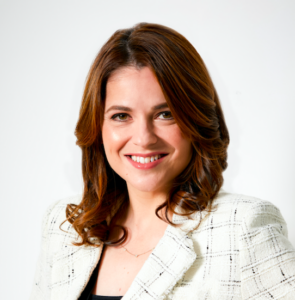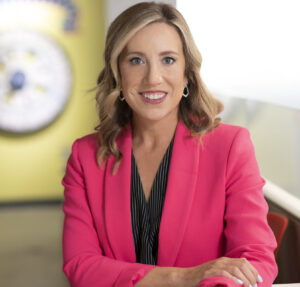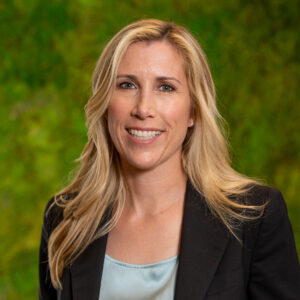6 questions with: Curaleaf’s Tracy Brady
Tracy Brady shares the relatable and unique challenges that keep her up at night.

Tracy Brady, senior vice president of global corporate communication at Curaleaf, takes the helm in steering awareness and visibility for the company’s mission, vision, and values.
With a dash of humor, the published essayist and novelist elevates Curaleaf’s profile across internal and external stakeholders, from employees and consumers to investors, legislators, regulators, community influencers, and national media.
Brady’s contributions earned her the title of 2022 Changemaker at the PRNews Top Women in PR Awards.
We caught up with Brady to get thoughts on the future of the communications industry.
What book, podcast or other media do you recommend to other comms pros?
Mornings are usually pressed for time, so I like to “news surf” before jumping into email. Business Insider provides a great daily news summary, and of course, PR Daily Newsfeed is my go to source for PR & Comms content. I also scan my LinkedIn feed for more personalized content from companies and brands doing great work. The industry trade sites, Politico and Twitter (sorry, X) catch me up on other industry or legislative news I might have missed. I have always been a big believer in reading anything and everything, so evenings I like to spend time with the actual analog New York Times, magazines, and any good fiction – reading for pleasure helps Communications pros become better writers and, more importantly, better editors. Podcasts – I’m a glutton for Smartless, How I Built This, The Moth, New Yorker Radio Hour and Freakonomics.
What’s your favorite tool you use regularly for work?
Humor. Seriously – humor. I could not do my job without it. Our team relies on Microsoft Teams, for quick info sharing, updates and the daily GIF competition. We work cross-functionally with colleagues across the country every day – and Teams has great Snapchat filters for when you want to look better than you feel on a Monday. We also use Cision for press releases, Canva for creating visually compelling internal comms, and Muckrack for updating contact lists. Our other go-to super tool is our agency partners, who help us with everything from daily block and tackling to big picture and defense strategy. We’re lean, so they are an extension of our capabilities, and we couldn’t do half of what we do without them.
What excites you most about the future of communications?
While AI tools are exciting in the ways they can bring new efficiencies and scale to what we do, I’m more excited about two things – having four generations in the workforce who can teach and learn from each other, and the increasing number of user-friendly tools that help all of us be better, more creative content creators and publishers. The digital evolution and speed of change in our industry never fails to amaze me; there’s always something new to learn.
What communications challenge keeps you up at night?
Trolls. Misinformation. False narratives. The lack of civil discourse in disagreement. The amount of anger online. The trend of video over the written word. People finding out that I’m terrible at PowerPoint. Keeping my awesome team happy and fulfilled so they never leave. Worrying that the next PR crisis will be AI-generated but will have to be solved by humans. The executive team still not believing that one space now follows a period. Is that enough?
What’s the biggest challenge you’ve overcome in your career?
I think changing industries is always challenging but combine that with a move across the country without a job – that was my situation when I made a career pivot almost 20 years ago. I went from running a movie studio publicity department in Hollywood to freelancing for brand and agency communications in Boston. Ultimately it was a chance to build my skill set and benefit from exposure to a variety of sectors and it paid off – the eight years I spent at a top agency felt like getting paid to go to business school. But that first day without your office and colleagues from an industry where you cut your teeth – that was tough.
What is the best advice you’ve ever gotten?
“No one is thinking about you.” We tend to personalize things and make it about us, especially early in our careers when confidence may be evasive. At the end of the day if you put your head down, do your job and remain open to learning while being confident enough to offer your ideas and input, you will command respect, advance in your company and have a rewarding career. And always remember that “what you notice, other people notice.” That was a big one that works in every aspect of life, from bad corporate behavior to the unsung heroes of any organization. We’re all human, and we’re all in this together.
Isis Simpson-Mersha is a conference producer/ reporter for Ragan. Follow her on LinkedIn.







